Space
Sign up for our newsletter
We summarize the week's scientific breakthroughs every Thursday.
-
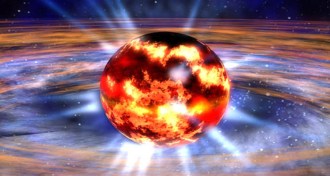 Physics
PhysicsNeutron stars shed neutrinos to cool down quickly
Scientists find the first clear evidence of rapid cooling of a neutron star by neutrino emission.
-
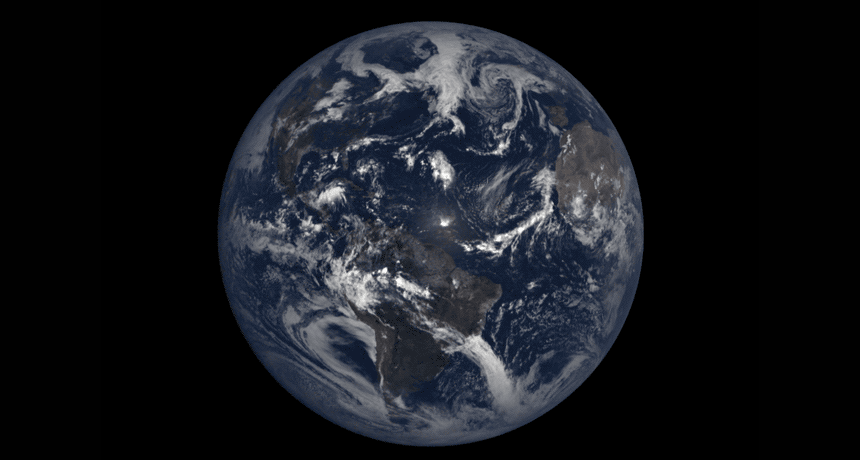 Planetary Science
Planetary ScienceLast year’s solar eclipse set off a wave in the upper atmosphere
The August 2017 solar eclipse launched a wave in the upper atmosphere that was detected from Brazil after the eclipse ended.
-
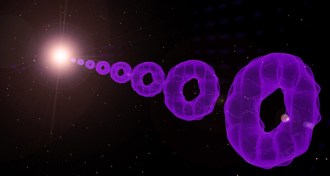 Physics
PhysicsA DIY take on the early universe may reveal cosmic secrets
A conglomerate of ultracold atoms reproduces some of the physics of the early universe.
-
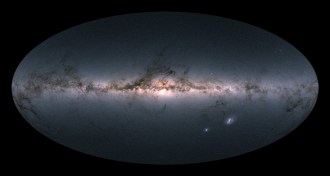 Astronomy
AstronomyThe latest star map from the Gaia spacecraft plots 1.7 billion stars
The Gaia spacecraft’s latest data release brings the number of stars with precisely measured motions up from 2 million to more than 1.3 billion.
-
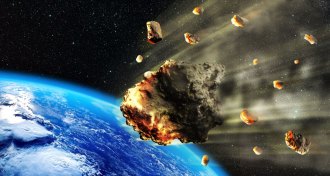 Planetary Science
Planetary ScienceAsteroids could have delivered water to the early Earth
Shooting mineral pellets at a simulated planet suggests an impact wouldn’t have boiled all of an asteroid’s water away.
-
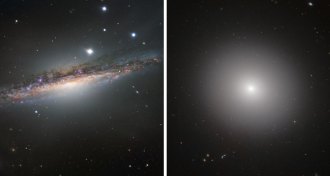 Astronomy
AstronomyYoung galaxies are flat, but old ones are more blobby
A survey of hundreds of star systems precisely links the shape of a galaxy to the ages of its stars.
-
 Planetary Science
Planetary ScienceUranus smells like rotten eggs
Planetary scientists detected hydrogen sulfide in Uranus’ upper clouds — the same compound that gives rotten eggs their terrible smell.
-
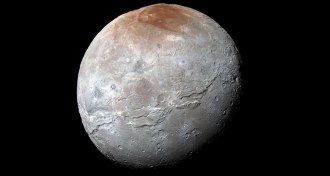 Astronomy
AstronomyCelebrity names now mark places on Pluto’s moon Charon
Pluto’s largest moon, Charon, now has 12 new names for its topological features.
By Dan Garisto -
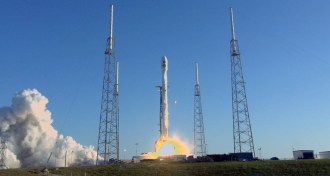 Astronomy
AstronomyNASA’s TESS spacecraft launches to begin its exoplanet search
After reaching its orbit in about two months, the telescope will start scanning nearby stars telltale dips in light that signal a passing planet.
-
 Planetary Science
Planetary ScienceThis meteorite’s diamonds hint that it was born in a lost planet
Bits of metal nestled inside diamonds suggest the space rock could have formed in a Mars-sized protoplanet in the early solar system.
-
 Astronomy
AstronomyDelayed launch of NASA’s next exoplanet hunter is now set for tonight
NASA’s next exoplanet hunter, TESS, launches today to seek planets in 85 percent of the sky.
-
 Space
SpaceLasers squeezed iron to mimic the conditions of exoplanet cores
In the first experiment to measure what exoplanets might be like on the inside, scientists hit iron with 176 lasers at once.